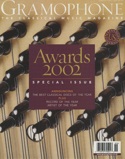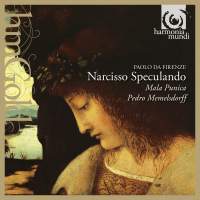Texte paru dans: / Appeared in:
|
|
|
Reviewer: Fabrice
Fitch
This recital shows
off Mala Punica at their eccentric best. So what has changed? For one thing, Memelsdorff has tightened the improvisatory sections, in both real and in musical time: the sense of spaciousness is still there, but the musical structure is more closely adhered to than before. One finds Mala Punica's trademark 'doodles' as well, but now reined in: the disc's longest track lasts less than seven minutes. This greater cogency contributes to an increased sense of purpose and co-ordination within the ensemble. And this, in turn, places the spotlight on individual performances when appropriate. I wouldn't like to single anybody out, but the singers are now central to the musical argument, which is surely as it should be in texted music. At the same time, the instruments have a presence and beauty that cannot be solely attributed to a fine sound recording. Of course, this is not the only way to perform the music of the Ars subtilior and its aftermath, and there will still be some for whom Mala Punica go too far. As far as the aesthetic decisions embodied here are concerned, let's call me a benevolent agnostic; but as to this recording's artistic merit, I am delighted to count myself a convert. |
|
|
|
|
|
Cliquez l'un ou l'autre
bouton pour découvrir bien d'autres critiques de CD |
|




